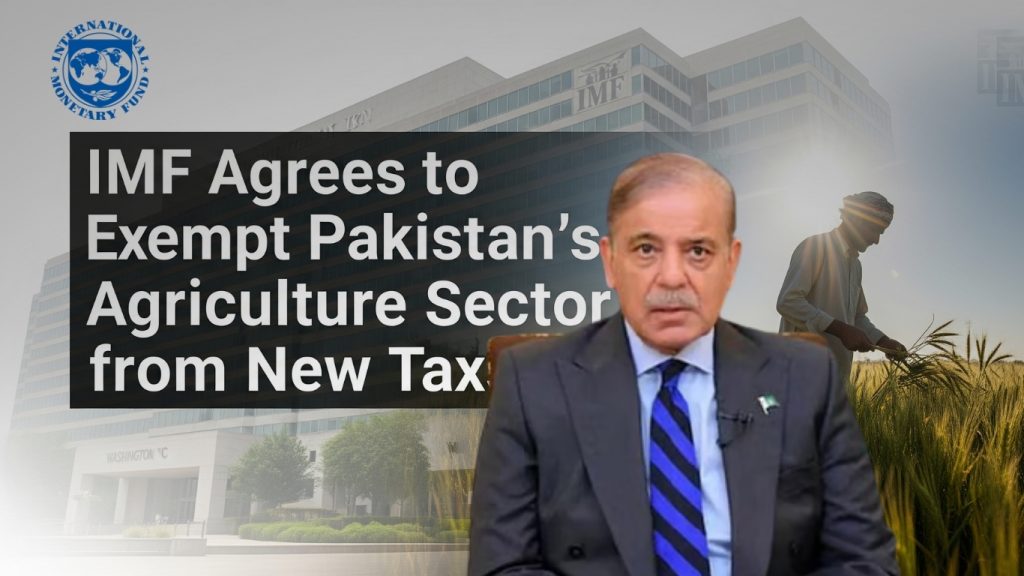Prime Minister Shehbaz Sharif has announced a significant development for Pakistan’s agricultural sector, stating that the International Monetary Fund (IMF) has agreed to exempt it from new taxes. Despite persistent demands from the global lender, the government successfully convinced the IMF not to impose any additional taxes on the agriculture sector, including on fertilizers and pesticides.
Addressing a federal cabinet meeting, Prime Minister Shehbaz expressed his satisfaction with this outcome, emphasizing that the agriculture sector in Pakistan is “already under pressure,” making its protection essential for national economic stability.
In other budget-related news, the Prime Minister also revealed changes for the salaried class. Individuals earning between Rs 600,000 and Rs 1.2 million annually will now pay 1% income tax, a reduction from the 5% imposed in the previous fiscal year (FY25). Additionally, the salaries of government employees have been increased by 10%. This revision for the salaried class, however, contrasts with an earlier budget speech by Finance Minister Muhammad Aurangzeb, who had stated a 2.5% income tax rate for this slab, differing from the 1% mentioned in the Finance Bill 2025.
Pakistan recently unveiled its federal budget for FY26, termed “for a competitive economy,” which targets a modest 4.2% growth for the upcoming fiscal year, a rise from the 2.7% expected in the outgoing FY25. The Prime Minister also highlighted the government’s efforts to increase fiscal space to meet the country’s defense needs amidst regional tensions. He affirmed Pakistan’s success in averting a sovereign default and its current trajectory towards a sustainable economic path. The government has allocated Rs1 trillion under the Public Sector Development Programme (PSDP) and stressed the importance of honoring commitments made with international partners.



Comments (0)
No comments yet. Be the first to comment!
Leave a Comment